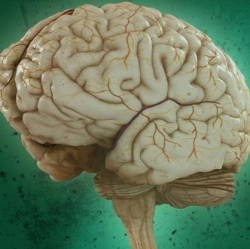
A team of researchers at Yale University has completed a molecular model for Alzheimer’s disease by identifying a protein that plays a key role in its onset. Promisingly, the study showed that when the activity of this protein is blocked by an existing drug, mice engineered as models for human AD recover their memories.
Alzheimer’s disease (AD) is a scourge of modern life, subjecting patients, families, and society to costs whose magnitude and nature are arguably unlike those of any other common disease. Often described as the progressive loss of self, more than 10 percent of those over 80 years in age are affected, a number projected to grow to about 100 million worldwide by 2050.
Alzheimer’s disease has been a part of the human condition as far back as historians can gaze, although it was only identified as a unique combination of symptoms in the early 1900s. It wasn’t such a major factor in everyday life in the past because life expectancy was much shorter, meaning people would tend to die prior to presenting with AD. For similar reasons, we have not evolved any very effective defense mechanisms against the advance of AD, either through evolution or through the progress of biology and medicine. While some progress has been made, developing a treatment without a clear understanding of the disease is a hard row to hoe.
